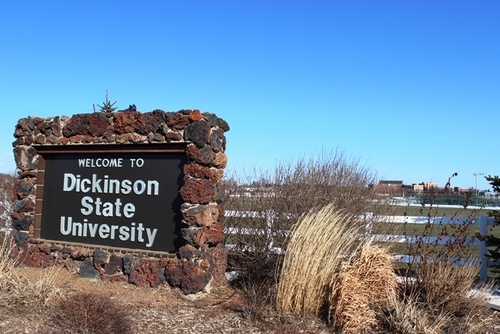Higher Ed Board Approves Bailout Purchase For Dickinson State Foundation

The Legislative Audit and Fiscal Review Committee (LAFRC) has voted for audits for the state’s university foundations, and it wasn’t even close. During its January 29 meeting, LAFRC voted 11-4 for the audits.
The folks at the universities aren’t happy about it, including NDSU President Dean Bresciani who claims that the state doesn’t have the authority to audit a supposedly independent foundation.
“I can’t even imagine how you would justify making the independent agency pay for the state’s audit,” Bresciani said, according to the Fargo Forum. “I’ve never heard of a state auditor’s office being able to audit a legally established, independent agency.”
The question is, are these foundations really independent?
For one thing, the foundations benefit in no small way from state resources. Bresciani himself has admitted to spending more time raising money for the NDSU Foundation than he does attending to the business of his school.
For another, when these foundations fail, the blowback hits the taxpayers. When the UND Research Foundation couldn’t make ends meet on the REAC Building they dumped it on the taxpayers last year. The Dickinson State University Foundation has found itself in a similar situation, currently in receivership thanks to a series of bad investments, and they want to dump some of their properties on the taxpayers.
Last night, the State Board of Higher Education approved the sale:
Sean Smith, a Bismarck attorney appointed as receiver to control the foundation’s finances after it was forced into receivership late last year, recommended the sale.
Smith advised the foundation to liquidate its assets due to recent financial hardship. North Dakota Attorney General Wayne Stenehjem made the recommendation for receivership after it was found that the foundation was using scholarships to cover overhead costs on real estate it owned.
After several meetings between the two parties, board members decided the transaction would be beneficial for both sides.
At the second of a two-part meeting that began Feb. 26, D.C. Coston, DSU’s retiring president, told the board that the school is interested in purchasing the properties to diversify student housing demands while also providing faculty and staff with affordable units.
“We need this institution to be in position to be attractive to students,” he said.
To be clear, I’m not necessarily arguing that this is a bad deal. It sounds like this housing would meet a real need on the DSU campus, and it also sounds like there will be no problem finding tenants. So, fair enough.
But what’s more important is the larger point, which is that these foundations are independent in name only. As a matter of fact, these foundations are supported in no small part by the universities and when they falter or fail it’s usually the taxpayers left to pick up the pieces.
During the banking bailouts of a few years ago there was saying I heard referring to the “too big to fail” institutions. It said that the banks were privatizing profits and socializing risks. When the banks are profitable, their profits are private. But when they get into trouble their losses fall on the public.
I feel like these foundations want the same situation for themselves. They want to be independent of state oversight and accountability, but free to benefit from their association with state institutions and able to rely on the safety net of the taxpayers if things go bad.
That may be a great situation for the university elites, but it’s a bad deal for the taxpayers.




